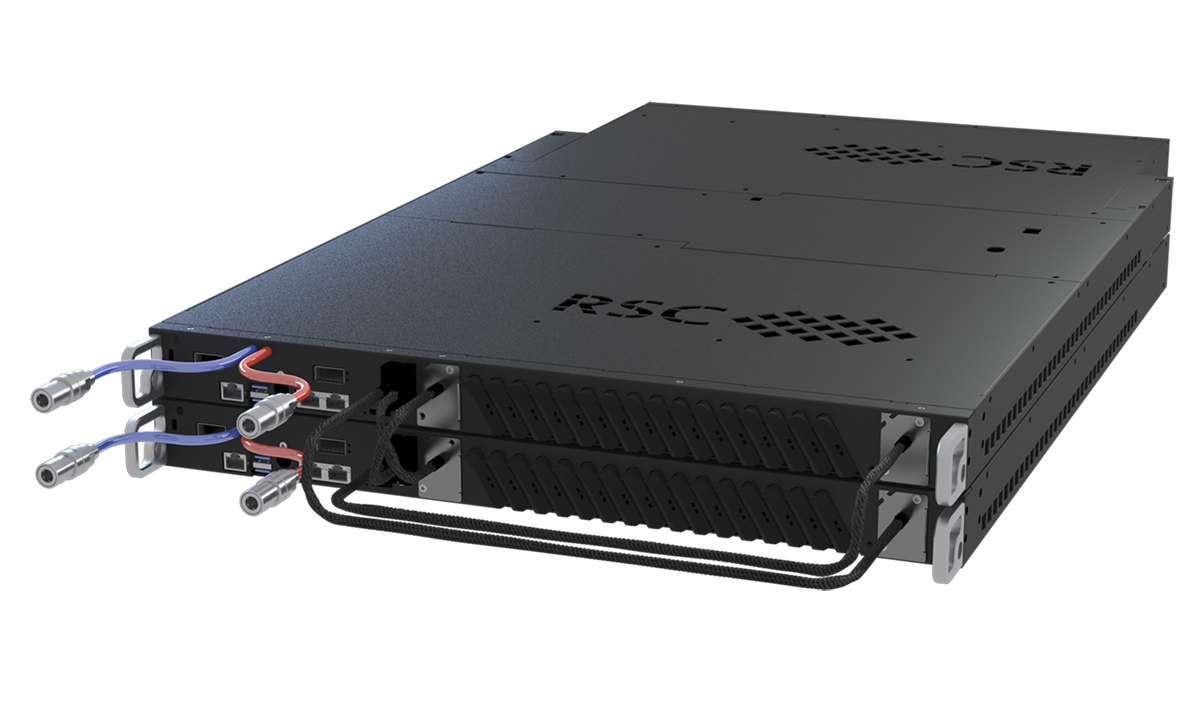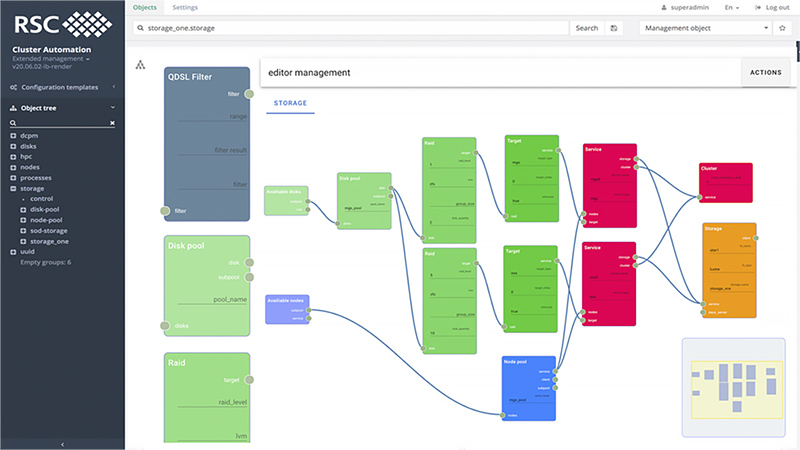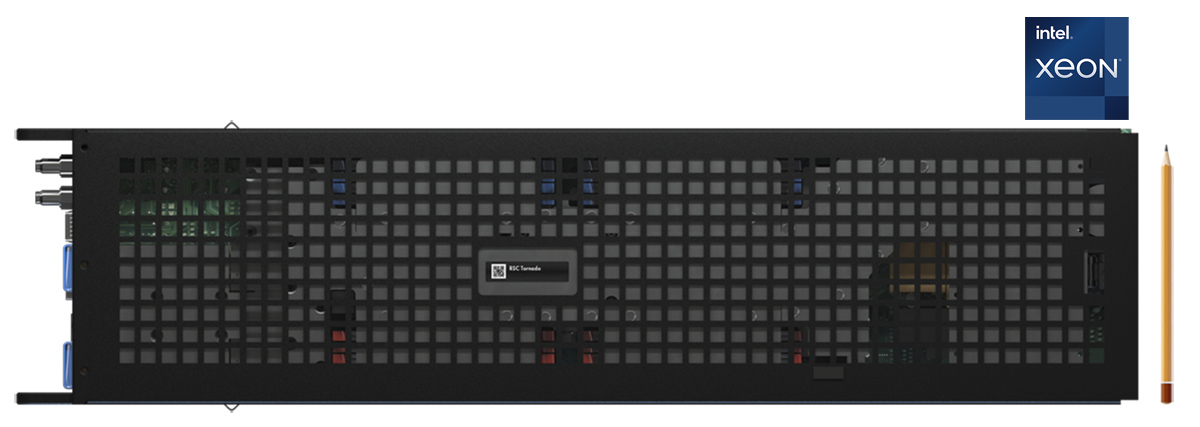
RSC Tornado AFS storage with high-availability features
RSC introduces the new RSC Tornado AFS intelligent storage system with high-availability features for building up of high-capacity storage. This solution provides high reliability and data availability by combining RSC Tornado AFS nodes in functional pairs. In the case one of the servers of a pair goes down, the second server would be able to provide full functionality of its storage elements. This approach enables high-reliability storage of up to 2PB in 2U form-factor with 64x Intel® SSD NVMe drives in EDSFF.L design (nicknamed «ruler»). Storage nodes also include two Intel® Xeon® Scalable 2nd Generation processors, Intel® Optane™ SSD drives and Intel® Optane™ DC Persistent Memory modules. RSC Tornado AFS supports 100% «hot water» liquid cooling with PUE as low as 1.04.
DAOS support in RSC Storage on-Demand solutions
RSC Group announces that its RSC Storage on-Demand solutions will support new Intel's open source DAOS (Distributed Asynchronous Object Storage) storage system that provides the highest speed of data access with various patterns. This solution is optimal for AI (ML/DL) segment. It enables multi-layered storage based on Lustre (link to Lustre) file system in Disaggregated Composable Infrastructure and flexible management of NVMe disk pools, and enhances these levels with high-performance components based on DAOS.
For many years, the increase of nominal storage performance was mostly achieved by boost of serial read/write operations speed. DAOS addresses restrictions of old approaches to high performance storage based on TCP/IP protocol, Linux core architecture and other bottlenecks when applications need high-speed random data access.
DAOS provides significant performance increase with a number of architectural principles:
- avoid of OS kernel fucntions, interrupts, context switching on data path from storage device to the point of processing;
- use of Storage Class Memory devices with efficient support of Byte Level Access for meta-data and caches;
- streamline of continuous and block R/W operations to NVMe-based devices.
RSC BasIS Orchestration Platform for High-Performance Composable Storage Architectures
RSC uses its experience of building composable disaggregated solutions in DAOS management with RSC BasIS orchestration platform with the new and much more effective user interface (UI).
Existing DAOS-based solutions required strict hardware-set ratio between processor resources, Intel® Optane™ DC Persistent Memory (PMEM) and SSD drives with NVMe interface. RSC BasIS platform enables composable approach for DAOS management combining servers with PMEM and servers with NVMe devices in pools connected with fast network fabric. Use of high-performance adapters with RDMA support, disaggregation of servers with NVMe-based media and Intel® Optane™ DC Persistent Memorу enables on-demand composability without loss of performance.
This approach removes the rigid restriction of PMEM/NVMe ratio in storage servers. Also it significantly increases possible capacity of the storage system. For PMEM capacity, DAOS currently requires having at least 6% of NVMe capacity per server, and this greatly restricts maximum effective number of disks per storage server. At the same time, composable architecture allows connection of unused disks to another server based on DAOS or Lustre.
As well, disaggregation lifts physical server hardware restrictions, like restrictions of PCIe bus lanes that are necessary by both storage media and network adapters and those of server chassis that can hold a limited number of extra devices.

New RSC Storage on-Demand user interface
RSC has developed the new RSC Storage on-Demand user interface that enables on-demand creation of complex multi-layered composable storage systems. This UI supports easy creation of parallel Lustre file system volumes, distributed DAOS storage and their combinations.
RSC will uncover these approaches in its presentation at DUG (DAOS User Group) on November 19 at SC20 conference (link to DUG).





